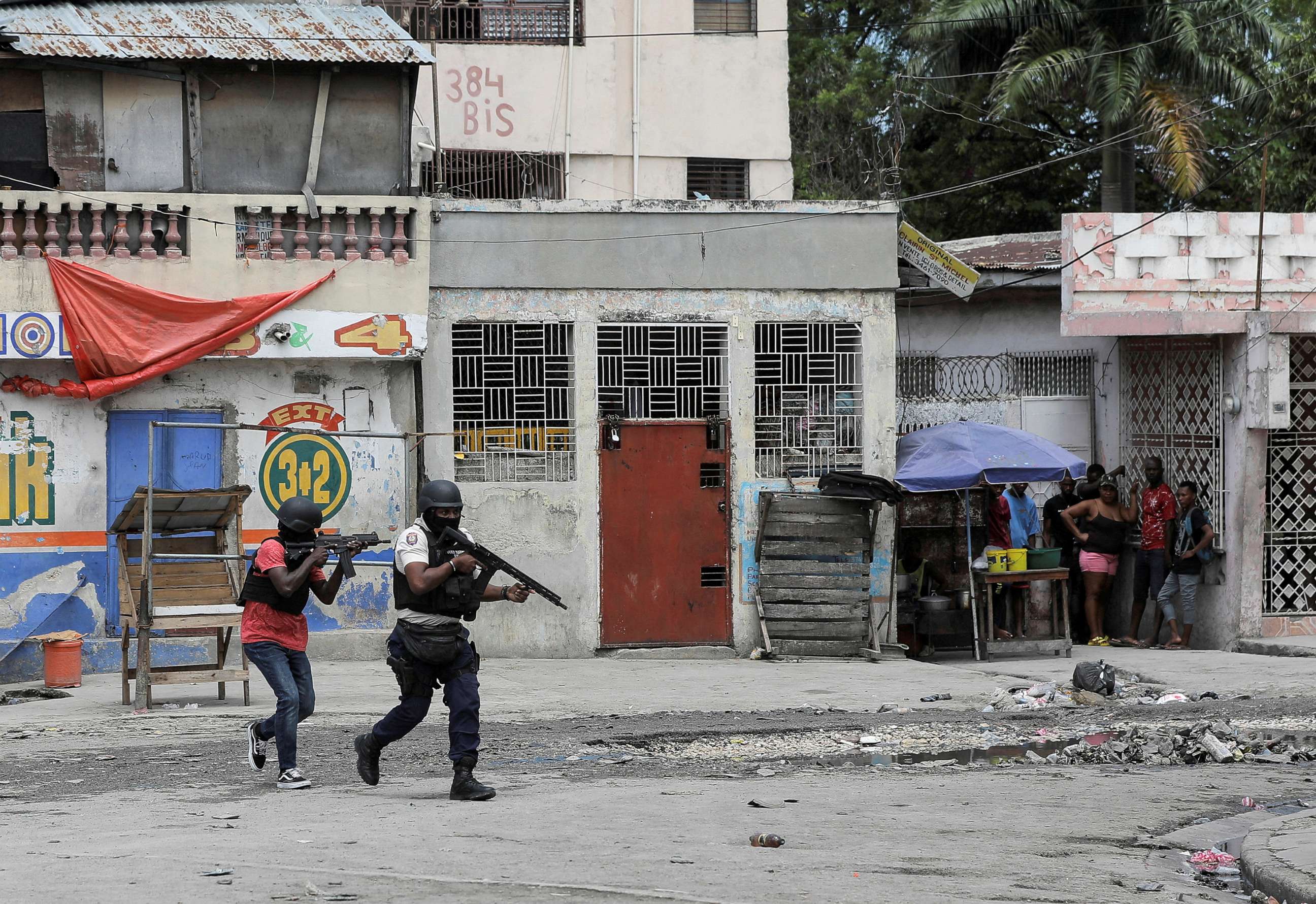What Haiti has to do right now to escape crisis amid government instability
There have been calls for foreign intervention in Haiti.
PORT-AU-PRINCE, Haiti -- U.N. Secretary General António Guterres made his first-ever visit to Haiti on July 1 to impress urgency upon whomever would listen as the country struggles with gang violence and ravaging food insecurity.
"Every day counts," he said. "If we do not act now, instability and violence will have a lasting impact on generations of Haitians."
The U.N. chief said solving Haiti's crisis in the short-term requires a two-pronged approach that addresses both security and political concerns.
The international community largely agrees, though that is where the consensus ends. There remains fierce debate over what any solutions would look like.
This story is part of a series, "Haiti: The Forgotten Crisis." Please click here for more.
As long as gangs rule large swaths of the country, the interim government has said elections will not take place, a source in the Haitian police said.
Humanitarian aid will continue to suffer and the healthcare system will continue to teeter on collapse.
Some modicum of security must be returned to Port-au-Prince streets for any lasting solutions to take hold.

Many, including Guterres, have argued Haiti's government and police force is not capable of providing that security purely on their own.
"I continue to urge the Security Council to authorize the immediate deployment of a robust international force to assist the Haitian National Police in its fight against the gangs," said Guterres in Port-au-Prince this month, something interim Prime Minister Ariel Henry agreed with.
Traditionally, Haitians are immensely skeptical of, and often outright reject, any solutions that involve foreign boots on the ground, a reluctance justified by the country's deep and painful history with such endeavors.
Many in the country still feel that way today.
There is, however, broad agreement among those in favor that the scope of mission for any such force must be extremely limited both in scope and length.
"Any force must be for a limited time and for a very specific mission, not just some U.N. peacekeeping force that didn't do anything to increase law enforcement capacity in Haiti when they left," said Etzer Emile, a Haitian economist and political scientist.
Daniel Foote, a former U.S. special envoy to Haiti, said foreign forces have become necessary, but believes it could be limited to just a few thousand troops.
"I would bring enough force protection to open choke points that the gangs have taken over," said Foote.

The suggestion is striking because Foote is ideologically opposed to an intervention force. He very publicly resigned in protest in August 2021 over what he called the "inhumane, counterproductive" deportations of Haitians from the U.S., calling U.S. Haiti policy "deeply flawed."
He has few illusions of the U.S. or any other country playing the role of savior.
But crucial to any security force, he said, would be a concurrent political change; the installation of a transitional government that has the popular backing of large swaths of the Haitian population–a level of support Henry can't claim.
Henry took over as de facto leader roughly three weeks after President Jouvnel Moïse's assassination in July 2021, backed by the U.S. in a controversial move. He had been appointed only a few days before Moïse was killed and had not yet been sworn in. He's led since then without a popular mandate, overseeing the country's unraveling at every level.
For many in the country, he's known simply as Roi Henry, King Henry, because he is an unelected ruler.
In February, Henry appointed a transition council to hold general elections but he has failed to deliver. The fear for many Haitians is any elections held under Henry's leadership will be seen as illegitimate.
"I'm not for Henry leading the elections because he hasn't proven he can do that," said Emile, who also believes a broad transitional government should be installed. He believes Henry could be a part of that coalition. Foote does not.
"The people are kind of like f--- this guy and his elections," said Foote. "I think the international community is once again conflating elections with democracy."

The takeaway from both Emile and Foote is that Haitians must buy into any potential solutions–not the chosen few of the Haitian elite but rather broad swaths of the population. Foote describes it as threading a needle– difficult, but not impossible.
For now, the international community and, most importantly, the U.S. continue to back Henry.
Secretary of State Antony Blinken recently met with Henry on the sidelines of the Caribbean Community heads of government meeting in Trinidad and Tobago.
"First and foremost, we're supporting your efforts to develop an inclusive, broad-based consensus on a path forward for governance and for development," said Blinken, sitting alongside senior staff across a table from Henry, in another clear sign of U.S. support for the embattled leader.
What the U.S. says it wants–a "broad-based consensus on a path forward"--is a popular idea. But as long as the U.S. continues to back Henry as the one to lead Haiti toward that goal, many will remain skeptical.
The U.N. Security Council gave Guterres until mid-August to produce a report outlining "the full range of support options the United Nations can provide to enhance the security situation including…support for a non-United Nations multinational force, or a possible peacekeeping operation, in the context of supporting a political settlement in Haiti."
Presenting options is one thing. Acting upon them is another. That uncertainty leaves Haiti's path forward very much in doubt.
-ABC News' Etant Dupain, Brandon Baur and Aicha El Hammar Castano contributed to this report.